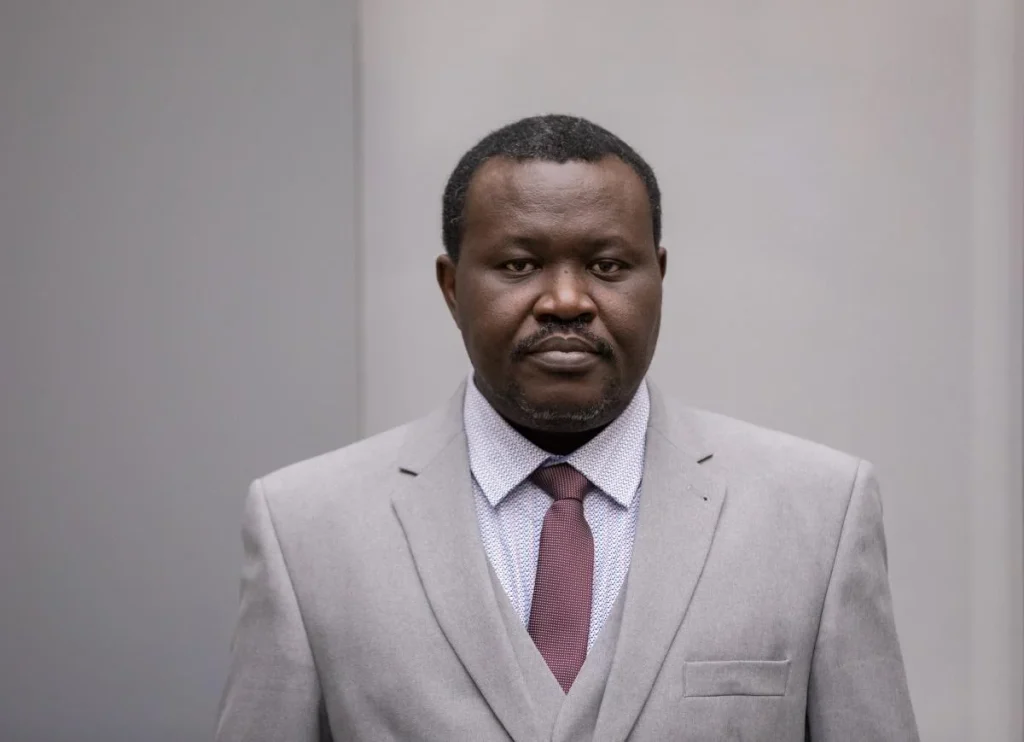The International Criminal Court (ICC), today, July 24, 2025, convicted Patrice-Edouard Ngaïssona, former head of the Central African Republic’s (CAR) football federation, of 28 war crimes and crimes against humanity.
Similarly, Alfred Yekatom, known as “Rambo,” a former militia commander, was found guilty of 20 charges.
Consequently, Ngaïssona was sentenced to 12 years in prison, while Yekatom received 15 years.
These convictions stem from brutal attacks on CAR’s Muslim population between 2013 and 2014, led by the anti-Balaka militias.
A Long Road to Justice
The trial, lasting nearly four years, saw over 170 witnesses and nearly 20,000 pieces of evidence presented.
As a result, a comprehensive picture of the atrocities was established, focusing on the violence that erupted after Muslim Séléka rebels seized power in 2013, ousting then-President François Bozizé.
In response, predominantly Christian anti-Balaka militias, led by Ngaïssona and Yekatom, targeted Muslim civilians in a wave of brutal reprisals.
The Role of Ngaïssona and Yekatom
According to prosecutors, Ngaïssona, a former sports minister, funded and coordinated the anti-Balaka’s operations, while Yekatom directly commanded attacks.
Notably, on December 5, 2013, in Bangui, approximately 1,000 people were killed in a single day, and half the capital’s population was forced to flee.
Victims were tortured, mutilated, and buried alive, targeted solely for their Muslim identity. Despite these allegations, both men consistently denied all charges.
Charges and Sentencing
Ngaïssona was convicted of 28 counts, including murder, persecution, and attacks on religious sites, but was acquitted of rape charges.
Meanwhile, Yekatom faced 20 counts, including murder and torture, though he was found not guilty of conscripting child soldiers.
Therefore, the ICC’s sentencing reflects the severity of their roles in the violence, with Yekatom’s longer sentence tied to his direct involvement in ground operations.
Context of the Conflict
The CAR was plunged into chaos in 2013 when Séléka rebels overthrew Bozizé, sparking sectarian violence.
Consequently, anti-Balaka militias formed as vigilante groups, escalating attacks against Muslim civilians perceived as Séléka supporters.
The interreligious conflict left thousands dead and displaced hundreds of thousands.
However, a recent peace deal in July 2025 led to the dissolution of two major rebel groups, signaling fragile progress toward stability.
A Step Toward Accountability
This ruling, the ICC’s first for crimes in CAR since 2012, marks a significant step toward justice for victims, as noted by Human Rights Watch.
Meanwhile, ongoing ICC investigations, including the trial of Séléka commander Mahamat Said Abdel Kani, aim to address abuses by both sides.
Additionally, separate proceedings against other anti-Balaka leaders are set to begin in CAR’s Special Criminal Court.
As the CAR navigates a tentative peace, this verdict underscores the importance of accountability for past atrocities. Stay informed as further developments unfold in this complex conflict.
Also; Osimhen Set for Galatasaray Medical After €75m Transfer Deal




















